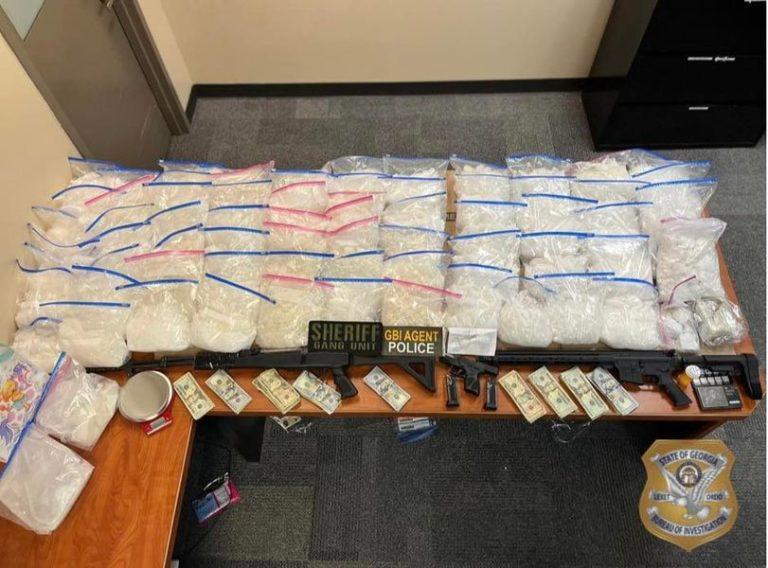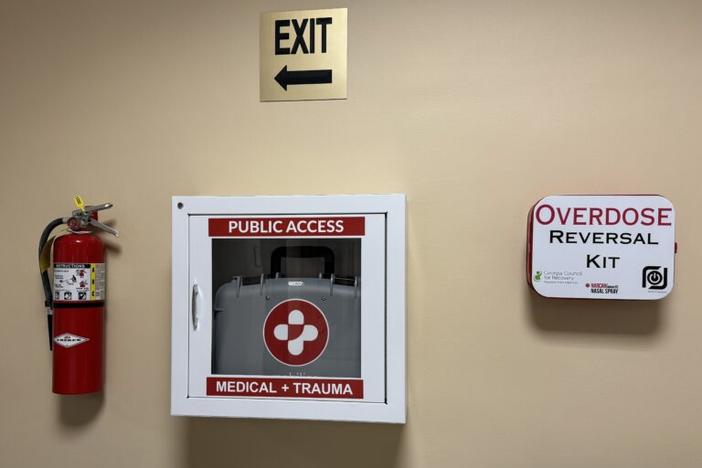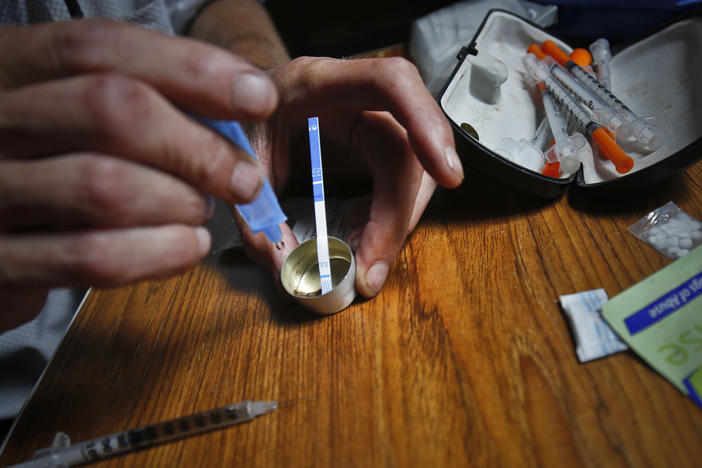
Section Branding
Header Content
Fentanyl-related overdoses surge in state
Primary Content

Illegal drugs laced with fentanyl have caused a surge of overdoses recently in Georgia, state health officials say.
Over the last two months, at least 66 emergency room visits in the state involved the use of cocaine, methamphetamines, counterfeit pills or other drugs likely containing fentanyl, a dangerous synthetic opioid that can be up to 100 times more powerful than morphine.

The overdoses have also involved fentanyl contained in crack, heroin, painkillers and marijuana, said the Georgia Department of Public Health.
Fentanyl (rhymes with sentinel) is mostly being smuggled into this country from China and Mexico.
One area seeing a fentanyl-related overdose uptick is Savannah. Dr. Jay Goldstein, medical director of the emergency department at Memorial Health, said Friday that many habitual drug users who have overdosed reported being surprised at the effect of the substance they took.
“They’re getting a bigger [narcotic] effect than they expected,” Goldstein told GHN. That includes teenagers who are experimenting with drugs, he said.
“I don’t think they believe they’re getting fentanyl,’’ he added.
Naloxone, a drug to reverse the effects of overdoses, has become more available to authorities and the general public in recent years. The drug works very well in saving overdose victims, Goldstein said. “It’s an amazing reversal.’’
Just this week, law enforcement officials reported seizing 65 kilos of meth, 1 kilo of heroin, and a quarter-kilo of fentanyl in Gwinnett County. The seizure involved the Gwinnett Sheriff’s Office, ATF Atlanta, Homeland Security Investigations and the Georgia Bureau of Investigation.
The GBI Gang Task Force said the fentanyl seized represented 125,000 lethal doses, the Atlanta Journal-Constitution reported.
A spokeswoman for the GBI, Nelly Miles, said the agency is seeing “a significant increase’’ in fentanyl, as well as a rise in overdose clusters, opioid-related deaths, and seizures of fentanyl.
“In the crime lab alone, the lab has seen an 80% increase of fentanyl results in the last year,’’ Miles said. “We’ve also seen a disturbing trend of samples called ‘purple heroin/purp’ that contains heroin and fentanyl.”
A national study published Thursday said that law enforcement seizures of pills containing illicit fentanyl increased nearly 50-fold from the first quarter of 2018 to the last quarter of 2021.
“This is a national phenomenon,’’ said Hannah Cooper, the Rollins chair of Substance Use Disorders Research at Emory University.
Fentanyl is used in producing these substances in order to reduce the amount of the more expensive drug, such as heroin, that the dealer is selling. “It comes down to efforts by manufacturers and dealers to cut costs,’’ she said.

Over the past few years, it’s been mixed with stimulants such as cocaine and meth, Cooper added.
Fentanyl-related overdose deaths have been increasing in Georgia since the start of the COVID-19 pandemic. Between May 1, 2020, and April 30, 2021, fentanyl-involved overdose deaths jumped more than 100% as compared with the previous time period, Public Health said.
Cooper said that harm-reduction strategies can stem the tide of overdoses and deaths.
These tactics include making fentanyl-testing strips — which can detect the substance in a drug product — more available, as well as Naloxone (Narcan). Another strategy is to improve access to effective drug treatment services, Cooper added.
Public Health officials emphasize:
** If you suspect a drug overdose, call 911 immediately, provide the location of the overdose and stay with the individual until help arrives.
** Georgia has a medical amnesty law that protects individuals who may be experiencing an overdose and callers seeking medical attention for drug overdoses.
** Naloxone can be obtained from pharmacies in Georgia without a prescription under a standing order from the Public Health commissioner.
** For access to services and immediate crisis help, the Georgia Crisis & Access Line, 1-800-715-4225, is available 24/7.
This story comes to GPB through a reporting partnership with Georgia Health News.
Secondary Content
Bottom Content




